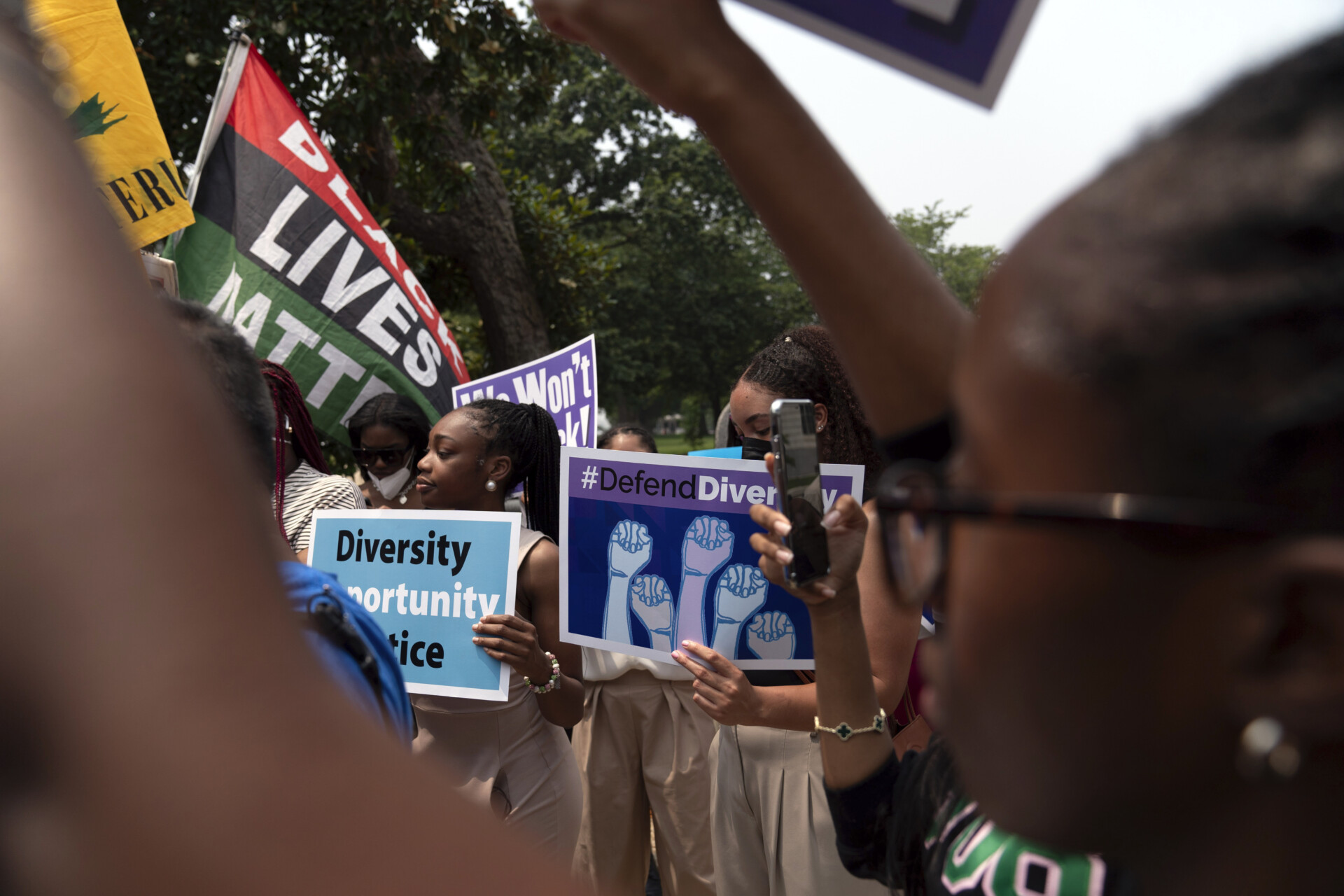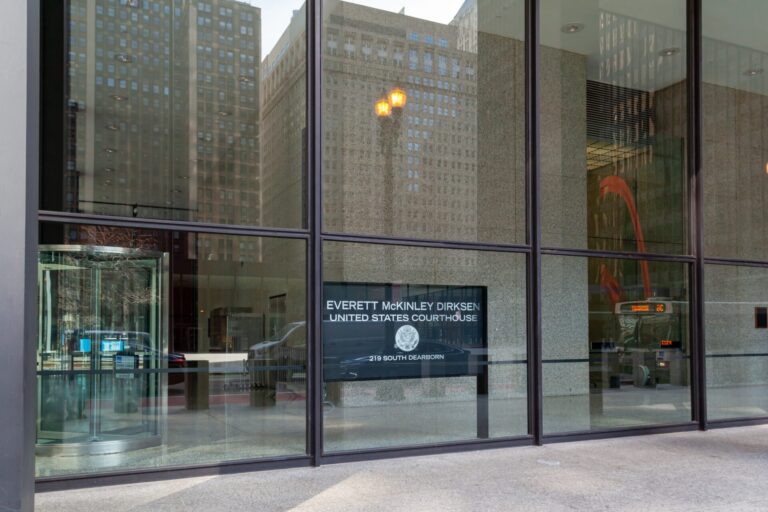Utilities Quietly Walk Back Commitments to Diverse Hiring, Social Justice

After spending the past half-decade scaling up efforts to diversify their workforces and suppliers as well as making and touting donations to social justice organizations, corporate utilities across the U.S. have begun to water down or abandon their commitments to promote diversity within their businesses and better serve communities of color.
The retreat coincides with a sweeping right-wing campaign, championed by the Trump Administration, to purge “diversity, equity, and inclusion” (DEI) from American society. The Administration’s push has exposed fault lines between corporations, with many capitulating and others standing firm.
Many utilities made commitments to support racial justice in 2020, after Minneapolis police murdered George Floyd and touched off a global reckoning on racism. Corporations across sectors responded to widespread calls for change with a wave of pledges to do their part, both internally and in the communities they serve.
Utilities had previously framed their commitments as tangible, common-sense steps that benefit their workers and their companies as a whole. Common objectives include recruiting and promoting people of color and women, deepening partnerships with community groups, and rewarding executives for achieving related goals.
Corporate utilities have reliably advertised their racial equity-related pledges in press releases and public statements over the years; they have been far quieter in rolling them back. Shareholder reports and other documents indicate broad backpedaling across the utility sector.
Here, the Energy and Policy Institute outlines notable shifts made recently by several individual utilities that underscore the larger trend.
Xcel Energy
Despite lofty commitments made after Floyd’s murder, Xcel Energy – which is based in Minneapolis – has walked back several of them.
Days after Floyd died, Xcel posted a statement professing it would “stand united against racism, intolerance and discrimination” and “pledge to support our African American communities and employees, and drive dialogue that will allow us to be part of the solution.” Alongside other Minnesota companies, Xcel also pledged “to do more to eliminate racial disparities because our state’s future depends on it.”
Xcel is striking a different tone today. In an April 2025 securities filing, Xcel scrubbed “Diversity, equity, and inclusion (DEI)” from its list of corporate focus areas. And while Xcel listed “Diversity, Equity, & Inclusion” as a “key performance indicator” for executives last year, an April 2025 filing pared back the metric to just “Inclusion” – while at the same time crediting itself with higher performance in the category.
In addition, Xcel appears to have removed webpages focused on diversity and supplier diversity. When asked about the apparent deletion, an Xcel spokesperson did not deny that the content was removed.
‘We are continuously updating our digital content to provide the latest information for our customers and the communities we serve,” the spokesperson told the Energy and Policy Institute. “We evaluate our content routinely to ensure it meets all federal, state and local laws, highlights our leadership in the clean energy transition and enhances our customers’ experiences with us.”
At the same time, the Xcel spokesperson referred to the utility’s “longstanding commitment to creating a workplace based on core values, which inherently include mutual respect, acceptance of others, and delivering results.”
“We firmly believe our approach, which is embedded in our Code of Conduct, has been instrumental to our business success and meets the expectations of the communities and customers we serve,” the spokesperson said.
The latest changes follow other fractures in Xcel’s commitments.
Following Floyd’s murder, Xcel doubled down publicly on a partnership with the City of Minneapolis to install rooftop solar and battery storage at a community center in a historically Black neighborhood. Xcel described the project as a deepening of its commitment to serve communities of color, in response to Floyd’s death. Xcel later cut funding for the project, drawing sharp criticism from Minnesota utility regulators who said Xcel’s “good will” on diversity and equity was “in jeopardy.” Xcel eventually revived the project.
In addition, a University of Minnesota study found stark racial disparities in Xcel’s service disconnections. Xcel customers in communities of color were more than three times as likely to have their electricity involuntarily disconnected between 2017 and 2021, compared to those in predominantly white neighborhoods.
CenterPoint Energy
A second utility that serves Minneapolis, CenterPoint Energy – which is headquartered in Houston, Texas, one of America’s most racially diverse cities – has also walked back its commitments to racial justice and equity.
After Floyd’s murder, CenterPoint Energy committed to supporting “the cause of racial justice” and posted #BlackLivesMatter on its social media accounts. The utility released a lengthy statement in 2021 that heavily invoked Dr. Martin Luther King Jr., saying that Floyd’s legacy “is a call-to-action for all of us” that “offers us the opportunity to transform grief into hope with the determination to create a more just and inclusive society.”
But the following year, while the utility touted diversity, equity, and inclusion as pillars of its corporate giving strategy — with $100,000 in funding provided to Historically Black Colleges and Universities (HBCUs) — it sponsored a Texas Republican Party convention where members adopted a platform that called for the repeal of the Voting Rights Act and declared “homosexuality is an abnormal lifestyle choice.”
Though CenterPoint reaffirmed to shareholders in 2023 that “DE&I are critical components of our long-term business strategy, serving as cornerstones of our service, performance and growth,” the utility has since removed language from shareholder filings regarding its commitment to an “inclusive culture and work environment, free from discrimination of any kind.”
In shareholder communications so far in 2025, CenterPoint also replaced a commitment to “create a diverse workforce” with a commitment to “create a workplace where every employee is engaged, aligned to our values, strategy, goals and priorities, and understands how each person contributes to the Company’s long-term performance.” Additionally, it has removed a related provision that guided executive bonuses – even though it said last year that “meeting these diversity, equity, and inclusion goals is expected.”
CenterPoint also removed from securities filings mentions of its DE&I Council, previously described as focused “on the strategic pillars of employee engagement, community and giving, supplier diversity and sustainability, talent acquisition, and customer focus.” By early February 2025, CenterPoint had also removed DEI-related content from its website.
The latest shifts continue to widen the gulf between CenterPoint’s public statements and its actions, particularly in the wake of Hurricane Beryl of 2024. The storm left the majority of Houstonians without power, including communities of color which had fewer cooling centers and were among the last to have power restored, according to reporting from the Texas Observer.
CenterPoint did not respond to a request for comment from the Energy and Policy Institute.
Ameren
It’s a similar story with St. Louis-based Ameren, which serves Ferguson, Missouri, a majority-Black community also deeply affected by racial injustice.
Police officers there killed Michael Brown, an unarmed Black teenager in 2015, touching off historic protests that spread nationwide. In response, Ameren launched an effort to promote diversity, equity, and inclusion and provide community resources. In 2022, Ameren CEO Martin Lyons reinforced the utility’s commitment, saying: “Since 2014, our DE&I efforts have centered around courage. Being courageous means taking bold action and doing what you know is right, no matter what.”
But as the Trump Administration ramped up its anti-DEI rhetoric in recent months, Ameren has shifted course in kind.
Sometime after March 5, 2025, Ameren removed from its website the page promoting its DEI program and hosting related resources. It has also recast its “Diversity, Equity, and Inclusion” website as “Inclusion at Ameren,” and removed documents related to a “Diversity, Equity, and Inclusion Leaders Academy” it previously offered.
Shareholder communications filed around the same time solidify the changes. A February 2025 filing entirely excludes commitments to diversity and inclusion that were included the previous year. In addition to the specific removals of commitments to a diverse leadership team and workforce and a review of its performance against those goals, Ameren eliminated its DEI commitment that included philanthropy and volunteerism, support for community-building efforts, a diversity leadership summit, training programs, and employee resource groups.
In a shareholder report filed in March 2025, Ameren similarly removed mentions of its commitment to diversity that it had stated in the previous year’s report, along with a commitment to maintaining diverse representation on its board.
The utility also appears to have deleted the section of its website focused on “Environmental Justice Principles” and a press release announcing the principles.
When asked about the apparent shifts in its commitments, Ameren provided a statement to the Energy and Policy Institute that did not directly address the deletions and changes to its public communications.
“Ameren has always been and remains 100 percent committed to being an equal opportunity employer, maintaining a workplace free of discrimination and facilitating economic development for the communities we serve,” the statement reads. “Consistent with our longstanding mission and vision, we aspire to have an inclusive environment where all employees feel they belong, are respected and can thrive. Understanding and responding to the needs of a changing environment is critical to any sustainable business.”
Evergy
Evergy, which also operates in Missouri as well as Kansas, has followed a similar trajectory.
In 2020, Evergy’s then-CEO released a sharply worded statement on the “horrendous death” of George Floyd, calling it “the most recent example of deep-seated racial inequality that has been present in our country for decades” while noting that “we must do better as a country.” Within two weeks of Floyd’s murder, Evergy held meetings “to offer a safe space for Black employees to cope but also share stories, thoughts and solutions to help make our work environment a more inclusive space.”
The next year, current CEO David Campbell echoed his predecessor, saying the utility “can only fulfill our core values of safety, integrity, ownership, and adaptability by respecting each other and those we serve, being accountable for our actions, and focusing on the good of the whole. DE&I is a vital element to these objectives.”
Evergy’s current position stands in contrast.
A February 2025 securities filing removes a series of commitments to diversity and inclusion that Evergy had included the previous year, including to build a more diverse and inclusive workforce through recruiting and hiring practices, performance management, training and data analysis and reporting initiatives.” It also removed workforce diversity statistics and renamed Evergy’s “Chief Human Resources Officer and Chief Diversity Officer” as “Chief People Officer.”
In a March 2025 report to shareholders, Evergy continued to backtrack, stripping out board diversity statistics, removing DEI as a governance practice, and eliminating diversity efforts as a “governance highlight.” The utility also erased commitments to supplier diversity.
Evergy has also unlinked its DEI webpage from its home page, along with a webpage for its diversity program that highlights recruitment partnerships with organizations including the Urban League and NAACP and “diversity retention efforts.”
Evergy did not respond to a request for comment from the Energy and Policy Institute.
Southern Company
Southern Company – one of the nation’s largest utility companies with subsidiaries across the South and parts of the Midwest – once positioned itself as a national leader on racial equity.
It launched a series of initiatives in direct response to Floyd’s murder in 2020, which prompted Southern to funnel $200 million to social justice organizations and HBCUs and launch a “Moving to Equity” initiative that company leadership has insisted is “not a PR campaign” but rather a “cultural commitment” to long-term change. Then CEO-Tom Fanning drew a direct connection between the company’s more aggressive steps to promote DEI and Floyd’s murder.
“The killings of George Floyd and far too many other Black Americans awakened a growing recognition of the cumulative and compounded effects of systemic racial barriers and bias across institutions and society,” he told Southern shareholders in 2021. “We are seeing that the business community, not the government, will be the lead change effort for this movement. And I will do everything in my ability to have Southern Company and all of its subsidiaries viewed as role models among the private entities forging change.”
But as the Trump Administration escalates its anti-DEI efforts, Southern’s commitments appear to be crumbling. Recent securities filings and website changes show Southern has adopted a distinctly different strategy, undercutting the equity program it once celebrated and stripping related language from its corporate standards.
In its 2020 annual report, Southern had featured a whole section on its commitment to social justice and equity. Now, Southern has stopped issuing the annual “Moving to Equity” report for its once-ballyhooed program, and erased key materials from its website, including its widely promoted “Be the Change” campaign which aired ads on social media.
In a 2025 securities filing, Southern also removed language about supplier inclusion, community investment, and social justice that had been included the prior year. Additionally, the company watered down references to DEI, including by replacing its earlier statement that “diversity is important” with a note that “diverse perspectives are important.”
The divergence is an abrupt about-face for Southern, whose current CEO Chris Womack lists “championing diversity, equity and inclusion efforts” as one of his top successes when he was at the helm of Georgia Power. Womack, who became the first Black person to lead Southern in 2023, doubled down on that commitment in a 2023 speech to the American Association of Blacks in Energy.
“We cannot get distracted or deterred by divisive politics, or PR distractions that seek to use DEI as boogeyman language to scare, to frighten people,” Womack told a conference of the American Association of Blacks in Energy in 2023. “We must defend DEI at every turn.” He is now presiding over Southern as it dismantles its DEI programming.
Southern subsidiaries include Alabama Power, Mississippi Power, and Georgia Power. The utility did not respond to a request for comment from the Energy and Policy Institute.
Dominion Energy
Days after Floyd’s murder, Dominion posted to a social media account: “We see you. We hear you. We share the anger of our communities at the unjustified deaths of Breonna Taylor, Ahmaud Arbery and George Floyd. We know we have work to do.” The utility – which serves customers in Virginia and the Carolinas – also pledged a $5 million grant that would support “organizations focused on social justice and equality” and minority-owned small businesses. Dominion also pledged hundreds of thousands of dollars to HBCUs.
“At Dominion Energy, we have a saying that ‘Actions speak louder,’” Dominion’s then-CEO Thomas Farrell said at the time. Nearly five years on, Dominion is far less clear in what work, exactly, it will do to support racial justice – or whether it will at all. In securities filings from spring 2025, the utility dropped its usage of the phrase “diversity, equity, and inclusion” as well as language that indicated it was still committed to meeting its goal of increasing “diverse” workforce representation to 40% by the end of 2026. Dominion also removed incentives for executives that relate to their participation in DEI training.
It’s a sharp divergence from clear commitments made in a series of external reports focused on DEI that Dominion published earlier this decade. When current Dominion CEO Robert Blue took the reins of the company in late 2020, he suggested a diverse workforce was a “competitive advantage” and that the utility would be rigorous in holding itself accountable to public pledges.
“Sometimes we fall short. Pretending otherwise would be wrong,” Blue wrote in Dominion’s 2021 report. “And we know that DE&I is a daily discipline, not a box to check off and forget. … We strive to make progress, note areas where we can do better, and then find ways to make that happen.”
Dominion has not released a DEI report in the years since 2023. The utility did not respond to a request for comment from the Energy and Policy Institute.
Duke Energy
Duke Energy, headquartered in Charlotte, spent years building a track record of supporting diversity and inclusion. In 2018, it became the first electric company to sign onto an initiative Congress created to increase engagement between corporations and HBCUs. Around that time, it also partnered with the North Carolina Governor’s Internship Program to offer well-paid opportunities to HBCU students.
On its first earnings call after Floyd’s murder in August 2020, then-CEO Lynn Good led her presentation with an acknowledgement that “issues surrounding racial equity and social justice are front and center, as they should be” before emphasizing Duke’s determination to align the utility’s business with those values.
“We believe dearly that having diverse backgrounds, experiences and skills allows us to serve our customers better, innovate and attract the talent we need to be successful,” Good told investors on the call. “Now more than ever, we are relying on these values to cultivate a workplace rooted in diversity and inclusion.”
Amid the Trump Administration’s efforts to dial back racial justice, Duke appears to be wavering in the commitments it previously championed.
In a February 2025 securities filing, the utility dropped mentions from the previous year of its Enterprise Diversity and Inclusion Council and its aspirational goals for achieving workforce representation of at least 25% for women and 20% for people of color. And in the section about partnerships with community organizations, it dropped all mentions of its work with HBCUs.
Another Duke securities filing, its annual proxy statement filed in March 2025, reinforced the retreat from its initiatives to attract and retain a diverse workforce. That document dropped references that were included in the previous year’s proxy statement to “Diversity & Inclusion Learning Programs,” “Attracting Diverse Talent,” and “Courageous Conversations” that aim to “help build understanding and awareness and support an inclusive workplace.” It also removed language affirming that diversity is an important consideration for the Duke board.
Duke did not respond to a request for comment from the Energy and Policy Institute.
FirstEnergy
FirstEnergy – the utility that serves Ohio, Pennsylvania, New Jersey, West Virginia, and Maryland – was one of three companies featured in a 2021 Forbes article about the wave of corporate DEI commitments by U.S. companies after Floyd’s death. FirstEnergy’s home state of Ohio has also been the site of police killings of Black people, including 12-year-old Tamir Rice in 2014 and Adam Coy in 2020.
In the Forbes story, Chris Walker, FirstEnergy’s Senior Vice President and Chief Human Resources Officer, pointed to DEI as a key focus for the utility.
“We have been on our DEI journey for several years and it’s our goal to weave DEI into the fabric and culture of our organization,” she said. “DEI is one of five core values of our company, and while the function sits within HR, it is not an HR initiative. It is an enterprise-wide priority in which each employee has ownership and involvement.”
FirstEnergy has accrued awards and accolades for diversity in recent years, but a federal criminal investigation helped expose how in 2019, money from the utility secretly paid for anti-Asian racist political ads as part of a scheme to secure a $1 billion bailout from Ohio ratepayers.
While the utility still lauds itself for receiving “regional and national recognition for our commitment to employing a diverse workforce,” its commitment to that outcome appears to be fraying. Walker’s comments are at odds with FirstEnergy’s most recent securities filings, which delete mentions of several company initiatives and policies related to DEI.
In a change from the previous year, a 2025 filing by FirstEnergy deleted mentions of a series of steps taken by the company, including its executive DEI council, working groups to implement DEI, employee resource groups, and transparent DEI data and promotion processes. The latest shareholder communications from FirstEnergy also removed language about active recruitment of diverse candidates. The utility has also scratched executive pay incentives based on DEI-related metrics.
FirstEnergy did not respond to a request for comment from the Energy and Policy Institute.
American Electric Power (AEP)
American Electric Power (AEP), which serves 5.6 million customers across 11 states, has also walked back commitments to diversity. In June of 2020, then-CEO Nick Akins cited Floyd’s death as underscoring the work necessary to address racial equity, saying “we’ve made it clear that anyone who can’t support our inclusion and diversity commitment doesn’t belong at AEP.” Akins framed AEP’s commitment to DEI with an anecdote, stating that “it was incredibly moving for me when an African American employee recently commented that he ‘can breathe here’ at AEP. I won’t stop working until he can breathe everywhere.”
As recently as April 2024, AEP highlighted its designation as one of Forbes’ Best Employers for Diversity.
In 2025 securities filings, however, AEP has eliminated its commitment to “building and maintaining a workforce that generally reflects the communities we serve” and removed its belief that AEP’s “workforce generally should reflect the diversity of our customers and the communities we serve.” AEP also removed mention of its employee resource groups from filings, which it previously dubbed “one of the best ways for AEP to demonstrate our commitment to a trusting and inclusive work environment.”
AEP also renamed its DEI website to just “Inclusion,” and eliminated its goal of a diverse workforce previously meant to “build and maintain a workforce that reflects the communities we serve” and to “increase the number of leaders from underrepresented groups within the enterprise and within successor pools.”
In addition to workforce diversity, AEP has also eliminated mention of its supplier diversity program, both from their website and securities filings. It also removed incentives for its executives related to supplier diversity and employee inclusion.
AEP did not respond to a request for comment from the Energy and Policy Institute.
Edison Electric Institute (EEI)
The backpedaling from public statements in support of DEI includes Edison Electric Institute (EEI), the trade association for investor-owned electric utilities. Like many of its utility-members, EEI in a June 2020 statement cited “the senseless deaths of George Floyd” and “the pain of the Black community” in its recognition that the utility industry “can – and we must – do more” to advance diversity and inclusion.
In a statement recognizing Juneteenth the following year, EEI reinforced that its “member companies are committed to advancing racial and social justice and diversity, equity, and inclusion (DEI) in their companies and across our industry.” The trade association also referred to “an industry-wide DEI initiative” that it launched in 2020, in which 100% of its members were participating.
As of April 2025, EEI had removed its Diversity, Equity, and Inclusion page, which included resources showcasing its member utilities’ DEI programs, promoting and measuring member utilities’ participation in the now-eliminated DEI initiative. An EEI spokesperson told the Energy and Policy Institute in late April that it was “working to update” its DEI webpage and that a revamped version would go live in the coming weeks.
In addition, EEI has renamed its Business Diversity program to “Business Development” and removed commitments to supplier diversity despite its own research showing positive economic impacts for under-represented members of the business community.
In response to questions from the Energy and Policy Institute, EEI referred to its forthcoming DEI webpage.
Photo credit: Jose Luis Magana / Associated Press



